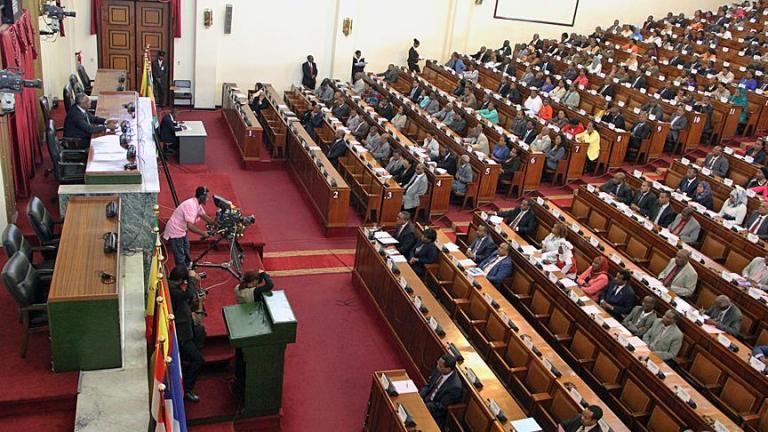EU commend Ethiopia’s initiative to make political reforms

By Tesfa-Alem Tekle
July 20, 2017 (ADDIS ABABA) – The European Union (EU) on Thursday commended the ruling party, Ethiopia peoples Revolutionary Democratic Front (EPRDF) for opening space for dialogue with opposition parties.
Currently, 21 political parties, including the ruling coalition EPRDF are engaged in consultations and debate to bring about political reform in a bid to strengthen democratic culture in the horn of Africa’s nation.
The political parties dialogue was launched in January intends to allow legally operating opposition parties who lost Parliamentary seats to play own political roles on major national issues.
The reform initiative also intends to address public demands who had long sought for more political inclusiveness to accelerate the democratisation process of the country.
“EU is very happy and welcome the ongoing political dialogue with civil society and political parties,” said Chantal Hebbercht, EU head delegation to Ethiopia after discussions between ambassadors of EU member states and Prime Minister Hailemariam
Hebberchat told reporters here in Addis Ababa that this kind of direct dialogue with parties, the people and civic society is very crucial in the democratisation process.
Some opposition officials taking part in the ongoing national dialogue today told Sudan Tribune that the initiative the ruling party had taken is a major step forward towards strengthening the country’s democratic culture.
They said the initiative of engaging the different parties in a political negotiation and dialogue would open the doors for political space and in building participatory democracy and political pluralism in the country.
According to Teshome Toga, Ethiopian Ambassador to EU, the delegation was briefed by the Premier on the effort regarding the in-depth reform that the government has been pursuing and the political reform being undertaken through dialogue with political parties and civic societies.
EPRDF opened a room to opposition political parties to sit for the negotiations after growing public complaints in connection with lack of transparency and absence of open discussion between the ruling party and other political parties.
Reforms in the electoral process and on the controversial anti-terrorism as well as other major national issues which had differences with the ruling and other parties are among some national agendas tabled on the ongoing consultations and debate.
The Ethiopian government has invited the EU member states to follow the ongoing negotiation among the parties focused on various agendas.
Ambassadors of EU member states residing in Addis Ababa each year hold dialogue on the partnership with Ethiopia in accordance with the ACP-EU Partnership Agreement, signed in Cotonou, Benin in June 2000.
(ST)
